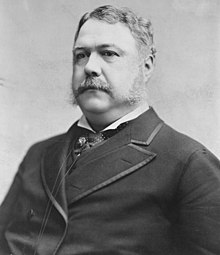📖 Presidential Profile
Comprehensive overview of leadership, policies, and historical significance
📋 Biography & Political Journey
The Accidental Reformer’s Transformation
Chester A. Arthur assumed the presidency under tragic circumstances following James Garfield’s assassination in September 1881. Few expected much from the former customs collector who had built his career through New York’s Republican machine politics. Arthur’s background as a “Stalwart” Republican, loyal to Senator Roscoe Conkling’s patronage system, suggested he would roll back Garfield’s reform agenda and return to traditional spoils system governance.
However, Arthur surprised both supporters and critics by embracing comprehensive government reform. His transformation from machine politician to reformer became one of the most remarkable character arcs in presidential history. Arthur understood that Garfield’s assassination by a disgruntled office-seeker had created a national crisis of confidence in the patronage system, and he rose to meet the challenge with unexpected statesmanship.
Civil Service Reform and the Pendleton Act
Arthur’s greatest achievement was signing the Pendleton Civil Service Act of 1883, which established a merit-based system for federal employment. The legislation created the Civil Service Commission and required competitive examinations for many government positions, effectively ending the spoils system that had dominated American politics since Andrew Jackson’s presidency.
The act initially covered only about 10% of federal positions, but it established the principle of professional, non-partisan government service. Arthur’s support for civil service reform alienated his former political allies in the Stalwart faction but earned him respect from reform-minded Republicans and Democrats. “No higher or more beneficial change could be made in our political system than the adoption of a comprehensive civil service law,” Arthur declared, marking his complete break with his patronage past.
Modernizing the Navy and Economic Policy
Arthur’s administration initiated the modernization of the U.S. Navy, authorizing construction of the first steel warships in American history. The ABCD Ships (Atlanta, Boston, Chicago, and Dolphin) marked the beginning of America’s transformation from a coastal defense force to a modern naval power capable of projecting influence globally.
Despite pressure from his party, Arthur vetoed the Rivers and Harbors Act of 1882, denouncing it as wasteful pork barrel spending. His veto message criticized the bill’s numerous local projects as examples of congressional irresponsibility and fiscal excess. Arthur’s fiscal conservatism and opposition to special interest legislation demonstrated his commitment to principled governance over political expediency.
The Chinese Exclusion Act Controversy
Arthur’s presidency was marked by his signing of the Chinese Exclusion Act of 1882, the first federal law to explicitly prohibit immigration based on race or nationality. While Arthur had initially opposed more extreme versions of the legislation, political pressure from Western states and organized labor ultimately convinced him to sign a modified version that suspended Chinese immigration for ten years.
The act reflected the anti-Asian sentiment prevalent in late 19th-century America, particularly in California where Chinese immigrants were blamed for economic problems. Arthur’s acquiescence to exclusionary policies contradicted his general support for civil rights and demonstrated the political limits of presidential leadership during this era. The legislation would remain in effect until 1943, representing a significant stain on American ideals of equality and opportunity.
The Fashion President and Midnight Wanderings
Arthur was renowned as the most fashionable president in American history, earning the nickname “Elegant Arthur.” He reportedly owned over 80 pairs of pants and would change clothes multiple times per day, setting new standards for presidential sartorial elegance. His wardrobe was so extensive that critics joked he spent more on clothing than most Americans earned in a year.
The president’s night owl tendencies became legendary in Washington social circles. Arthur regularly stayed up until 2 or 3 AM, often taking midnight carriage rides through Washington with friends and political associates. These nocturnal excursions sometimes included stops at fashionable restaurants or private clubs, leading to gossip about the president’s unconventional schedule. When asked about his late-night habits, Arthur reportedly replied that he did his best thinking after midnight, when the pressures of office seemed less overwhelming.
Humor & Jokes
Arthur's Surprise Reform
Nobody expected Chester Arthur to be a reformer, including Arthur himself. Sometimes the best presidents…
Read More →Greatest Wins
🏛️ Presidential Transition and Constitutional Integrity
Arthur's seamless assumption of presidency after Garfield's assassination proved the Constitution's strength during America's darkest…
Read More →Epic Fails
📮 Prosecution of the Star Route Postal Frauds
Arthur's aggressive pursuit of postal corruption cases created political turmoil and accusations of partisan witch…
Read More →